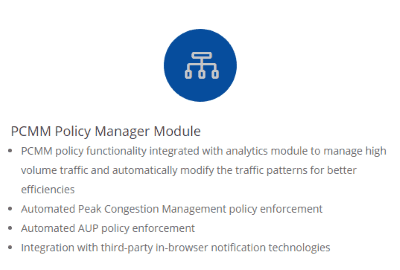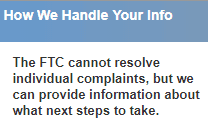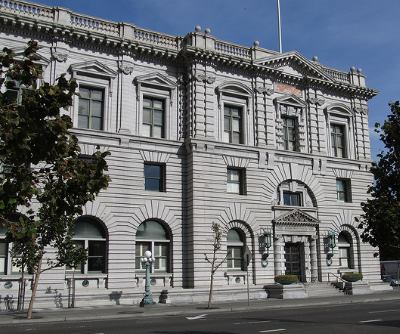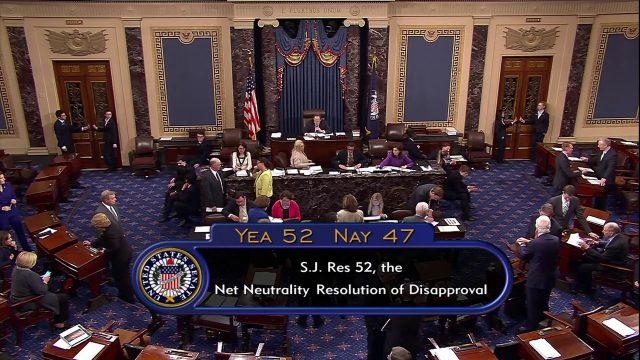 A well-coordinated campaign to manufacture news of a phony cyberattack and give false information to the press to explain why the FCC’s electronic comment system crashed while news of net neutrality went viral has been exposed.
A well-coordinated campaign to manufacture news of a phony cyberattack and give false information to the press to explain why the FCC’s electronic comment system crashed while news of net neutrality went viral has been exposed.
Internal agency emails reviewed by Gizmodo show a clear intention by some agency officials to deceive the media and the public about the nature of serious outages in the regulator’s electronic public comment system during high profile coverage of net neutrality, blaming the outages on an organized distributed denial of service (DDOS) attack that appears to have never happened.
On the night of May 7, 2017, John Oliver did a segment about net neutrality on his HBO show Last Week Tonight. At the end of his piece, he urged viewers to send comments to the FCC in support of net neutrality. It was the second time Oliver’s viewers brought the FCC’s electronic comments system to its knees. After intense demand effectively locked up the system after Oliver discussed net neutrality in 2014, the FCC promised to improve the commenting system to accommodate more traffic. FCC chairman Thomas Wheeler said in 2014 the downtime could be attributed to massive interest in the issue of internet freedom from ordinary Americans.
But three years later, a new administration hostile to net neutrality and a new FCC chairman had a different story about just how interested Americans really were. Wheeler’s story was replaced by Ajit Pai’s claims that real people are not that interested in net neutrality and that the downtime, as well as what he calls “fake comments” left on the system, are the result of nefarious deeds by an unknown party or parties. Pai and his staffers have systematically attempted to de-legitimize and gaslight supporters of net neutrality. In condescending tones, Pai and his allies claimed ordinary Americans were hoodwinked into supporting net neutrality by radical internet groups that have managed to fool them. By also calling into question the legitimacy of millions of comments from net neutrality supporters, Pai and his industry friends have had an easier time decapitating net neutrality protections, despite their widespread popularity.
Gizmodo reports the FCC under Pai and the Trump Administration is extraordinarily secretive about the issue. The agency has refused to produce any credible evidence of a denial of service attack, even when members of the media have sued the agency for the information and members of Congress have demanded to see the evidence.
Gizmodo:
[I]n May 2017, under the Trump-appointed chairman, Ajit Pai, at least two FCC officials quietly pushed a fallacious account of the 2014 incident, attempting to persuade reporters that the comment system had long been the target of DDoS attacks. “There *was* a DDoS event right after the [John Oliver] video in 2014,” one official told reporters at FedScoop, according to emails reviewed by Gizmodo.
David Bray, who served as the FCC’s chief information officer from 2013 until June 2017, assured reporters in a series of off-the-record exchanges that a DDoS attack had occurred three years earlier. More shocking, however, is that Bray claimed Wheeler, the former FCC chairman, had covered it up.
According to emails from Bray to reporters, Wheeler was concerned that if the FCC publicly admitted there was an attack, it would likely incite “copycats.”
“That’s just flat out false,” said Gigi Sohn, former counselor to Chairman Wheeler. “We didn’t want to say it because Bray had no hard proof that it was a DDoS attack. Just like the second time.”
Bray’s exchanges with reporters, which took place via email, were obtained by American Oversight, a watchdog group, under the Freedom of Information Act (FOIA). Gizmodo reviewed the more than 1,300 pages of records last week.

Bray
Most of the claims about a nefarious (and convenient) cyberattack seem to have originated from Bray, the senior official responsible for maintaining the comment system. A subsequent rambling response to the Gizmodo piece written by Bray was posted this morning to Medium.
In it, Bray recasts himself as a victim of a tech reporter who never called him and the general nature of partisan politics in Washington. Bray repeatedly claimed he was nobily working tirelessly to make sure “actual people” could comment on the high-profile issue of net neutrality. Unfortunately, he offered no proof in the form of logs or contemporaneous e-mails or written memos to prove what could be a plausible alternative theory of the traffic jam (namely, a person or persons unknown wrote poorly developed scripts to automatically submit comments to the FCC’s electronic comment system that had the unintended side effect of hopelessly clogging it.) In Washington, staffers confronting a high-profile problem likely to be noticed by their employers and become the fodder of political debate have learned the habit of saving everything, if only to avoid the kind of “guilty until proven innocent” standard of partisan-influenced investigations. The controversy has now achieved exactly the kind of high-profile prominence staffers generally dread.
“I have seen no evidence of a DDoS attack on the FCC comment system,” FCC Commissioner Jessica Rosenworcel told Gizmodo, in a direct contradiction of Bray. “But I did see millions of Americans write in to the FCC to stop its misguided effort to roll back net neutrality. It’s time for the agency to own up to what really happened.”
FCC staffers under the current chairman have a track record of being combative and secretive. There have been occasions when Stop the Cap! has tangled with Matthew Berry, Ajit Pai’s chief of staff. Berry, and other staffers, have been willing to engage in hand-to-hand combat on Twitter and other forms of social media and pass around pro-industry talking points routinely condemning the Obama Administration and the FCC under Chairman Tom Wheeler, while generally supporting large telecom companies:
 When not on Twitter, staffers like Bray often serve as off-the-record sources for news services like FedScoop, while also feeding talking points and fake details about the cyberattack-that-wasn’t to the Wall Street Journal. The resulting article proved particularly useful to Bray and the FCC, which used the published news story as ‘independent evidence’ from ‘a third party’ that the attacks were real.
When not on Twitter, staffers like Bray often serve as off-the-record sources for news services like FedScoop, while also feeding talking points and fake details about the cyberattack-that-wasn’t to the Wall Street Journal. The resulting article proved particularly useful to Bray and the FCC, which used the published news story as ‘independent evidence’ from ‘a third party’ that the attacks were real.
As investigative reporters made it clear they were not going to let the story go, top officials at the FCC have since circled the wagons and have done everything possible to keep the story from leaking out. In the more than 1,300 emails obtained by American Oversight in May, the FCC redacted every internal communication about the 2017 “cyberattack” and how to handle it in the press, citing attorney-client communications or the catch-all “deliberative process privilege” — the favorite obstructive choice of secretive federal agencies looking for a way around Sunshine Laws by denying access to any request for communications involving “governmental decisions and [how] policies are formulated.”
Gizmodo points out they also redacted discussions among FCC staffers about how to characterize the “attack” in response to inquiries from Congress. They even redacted a publicly posted Politico newsletter in full.
“Some of these messages are probably correctly redacted, but avoiding potential embarrassment is not a legitimate reason for the government to conceal an email,” Austin Evers, American Oversight’s executive director, said. “We were skeptical of the FCC’s explanations about its online comment system issues last May, and it’s clear that we still don’t have the full story about what happened.”

![]() “We measure all that for the operators and then what our Revenue Accelerator product does is it helps them micro-target their upgrade candidates,” Trudeau said. “This can have just really massive impacts on their revenues, to be able to truly not just micro-target the upgrade candidates, but also provide their reps with the ammunition they need and the visibility they need into their customer’s behavior and into their homes so they can intelligently talk to a subscriber.”
“We measure all that for the operators and then what our Revenue Accelerator product does is it helps them micro-target their upgrade candidates,” Trudeau said. “This can have just really massive impacts on their revenues, to be able to truly not just micro-target the upgrade candidates, but also provide their reps with the ammunition they need and the visibility they need into their customer’s behavior and into their homes so they can intelligently talk to a subscriber.”

 Subscribe
Subscribe
 This morning, Pai
This morning, Pai 
 A well-coordinated campaign to manufacture news of a phony cyberattack and give false information to the press to explain why the FCC’s electronic comment system crashed while news of net neutrality went viral has been exposed.
A well-coordinated campaign to manufacture news of a phony cyberattack and give false information to the press to explain why the FCC’s electronic comment system crashed while news of net neutrality went viral has been exposed.
 When not on Twitter, staffers like Bray often serve as off-the-record sources for news services like FedScoop, while also feeding talking points and fake details about the cyberattack-that-wasn’t to the Wall Street Journal. The resulting article proved particularly useful to Bray and the FCC, which used the published news story as ‘independent evidence’ from ‘a third party’ that the attacks were real.
When not on Twitter, staffers like Bray often serve as off-the-record sources for news services like FedScoop, while also feeding talking points and fake details about the cyberattack-that-wasn’t to the Wall Street Journal. The resulting article proved particularly useful to Bray and the FCC, which used the published news story as ‘independent evidence’ from ‘a third party’ that the attacks were real. Last week, AT&T announced its intention to abandon an appeal of a decision of the 9th Circuit Court of Appeals granting the Federal Trade Commission the right to continue its lawsuit against AT&T for speed throttling its “unlimited data” wireless customers.
Last week, AT&T announced its intention to abandon an appeal of a decision of the 9th Circuit Court of Appeals granting the Federal Trade Commission the right to continue its lawsuit against AT&T for speed throttling its “unlimited data” wireless customers.
 While AT&T publicly expressed confidence about its appeal right up to the day it abandoned it,
While AT&T publicly expressed confidence about its appeal right up to the day it abandoned it, 
 The Senate approved a resolution on a largely party line vote Wednesday that sends a symbolic message to the FCC it erred when it voted to repeal net neutrality.
The Senate approved a resolution on a largely party line vote Wednesday that sends a symbolic message to the FCC it erred when it voted to repeal net neutrality.